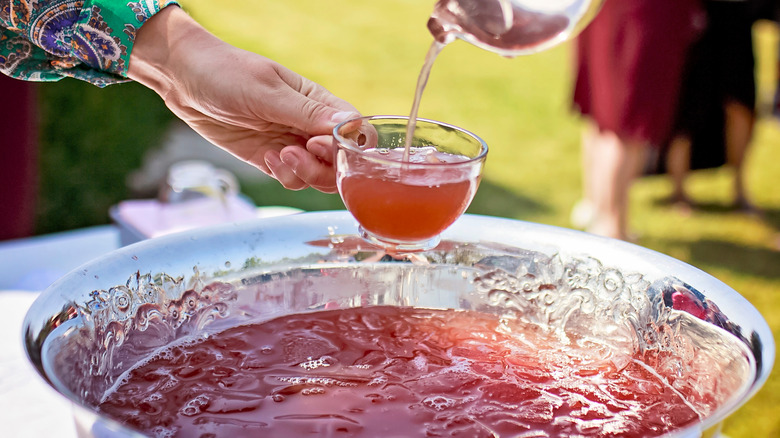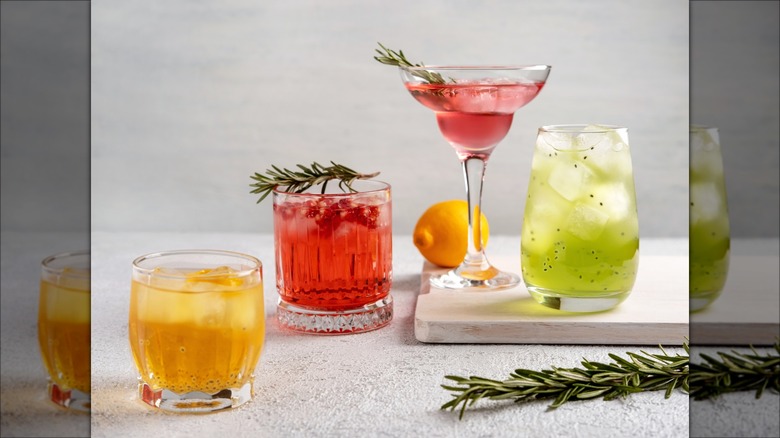The Major Difference Between Alcoholic Punch And Cocktails
A fun, boozy beverage is a great way to liven up any social gathering. As you navigate your way through finding the perfect recipe, however, you may find yourself wondering why some drinks are advertised as punches while others are listed as cocktails. What distinguishes one type from the other, and which kind of drink should you pick? We have all the answers, starting with this: the key trait that separates punches from cocktails is the ratio of their ingredients.
With similar ingredients and contexts in which they are served, the line between a cocktail and a punch, much like the difference between a cocktail and a mixed drink, can be pretty nuanced. Some people even consider punch to be a subcategory of the latter; however, the ratio of ingredients in most punch recipes is far less boozy than traditional cocktails, often adding three to four times more mixer than liquor. Cocktails, on the other hand, tend to treat spirits as the star, and will match the non-alcoholic elements ounce for ounce, or even forgo the add-ins entirely. Punches, therefore, contain significantly less alcohol, and since the highlight is often fruit juices, taste quite a bit sweeter than your standard cocktail.
Choosing between cocktails and punch
Given the differences in flavor and strength, the suitability of cocktails versus punch depends on the context in which they're being served. Punch is the more approachable option with its fruity taste that has just a hint of liquor. This makes it the best choice for situations where you may not know everyone's drinking preferences — after all, those who want a nippier beverage can always add more spirits to their individual drink. Punch is also a great fit for events where the drinks to be self-serve. While cocktails can also be made and served in this way, batching cocktails can be hard to get right and has a larger margin for error.
Meanwhile, cocktails are an easy win for any social gathering where guests are seeking out beverages that provide a stronger, more complex drinking experience, as the botanicals in liquor create a more layered flavor profile than juice or soda are able to. Some people may also see serving cocktails as a more luxurious choice. Since cocktails are traditionally made to order, they allow guests the freedom to customize their drink with their favorite spirit brands or to swap out ingredients they might not enjoy.

